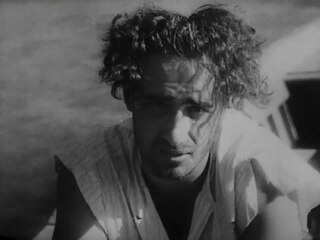Related Research Articles

Cahiers du Cinéma is a French film magazine co-founded in 1951 by André Bazin, Jacques Doniol-Valcroze, and Joseph-Marie Lo Duca. It developed from the earlier magazine Revue du Cinéma involving members of two Paris film clubs—Objectif 49 and Ciné-Club du Quartier Latin.

The cinema of Australia had its beginnings with the 1906 production of The Story of the Kelly Gang, arguably the world's first feature film. Since then, Australian crews have produced many films, a number of which have received international recognition. Many actors and filmmakers with international reputations started their careers in Australian films, and many of these have established lucrative careers in larger film-producing centres such as the United States.

Nick Zedd was an American filmmaker, author, and painter based in Mexico City. He coined the term Cinema of Transgression in 1985 to describe a loose-knit group of like-minded filmmakers and artists using shock value and black humor in their work. These filmmakers and artistic collaborators included Richard Kern, Tessa Hughes Freeland, Lung Leg, Kembra Pfahler, and Lydia Lunch. Under numerous pen names, Zedd edited and wrote the Underground Film Bulletin (1984–1990) which publicized the work of these filmmakers. The Cinema of Transgression was explored in Jack Sargeant's book Deathtripping.
Henry (Harry) Arthur Hooton was an Australian poet and social commentator whose writing spanned the years 1930s–1961. He was described by a biographer as ahead of his time, or rather "of his time while the majority of progressive artists and thinkers in Australia lagged far behind". Initially a socialist and "wobbly", he later professed anarchism and became an associate of the Sydney Push during the 1940s, with connections to many other Australian writers, film makers and artists. Hooton's constant attitude and literary style was extravagant, provocative and explicitly outrageous.

Experimental film or avant-garde cinema is a mode of filmmaking that rigorously re-evaluates cinematic conventions and explores non-narrative forms or alternatives to traditional narratives or methods of working. Many experimental films, particularly early ones, relate to arts in other disciplines: painting, dance, literature and poetry, or arise from research and development of new technical resources.

BolexInternational S. A. is a Swiss manufacturer of motion picture cameras based in Yverdon located in Canton of Vaud, the most notable products of which are in the 16 mm and Super 16 mm formats. Originally Bol, the company was founded in 1925 by Charles Haccius and Jacques Bogopolsky, the company's name having been derived from Bogopolsky's name. In 1923 he presented the Cinégraphe Bol at the Geneva fair, a reversible apparatus for taking, printing, and projecting pictures on 35 mm film. He later designed a camera for Alpa of Ballaigues in the late 1930s.

Remodernist film developed in the United States and the United Kingdom in the early 21st century with ideas related to those of the international art movement Stuckism and its manifesto, Remodernism. Key figures are Jesse Richards and Peter Rinaldi.
ACMI, formerly the Australian Centre for the Moving Image, is Australia's national museum of screen culture including film, television, videogames, digital culture and art. ACMI was established in 2002 and is based at Federation Square in Melbourne, Victoria.

Recovery was a music and youth-oriented television series that was broadcast by ABC TV in Australia. The show was aired each Saturday morning from 9 am to 12 pm, following the overnight video clip program, Rage, and was broadcast from April 20, 1996, to April 29, 2000. Recovery was produced "live-to-air" from ABC's Ripponlea studios in Melbourne, Victoria, Australia. Each episode featured a mix of live performances, music videos, other youth-relevant pop culture segments and comedy sketches.
Roadshow Entertainment is an Australian home video, production and distribution company that is a division of Village Roadshow that distributes films in Australia and New Zealand. Their first release was Mad Max. Roadshow Entertainment is an independent video distributor in Australia and New Zealand.
Paul Winkler is a German-born Australian filmmaker who lives and works in Sydney. He was associated with Corinne and Arthur Cantrill, Albie Thoms and David Perry in pioneering local experimental film production in the 1960s.
Senses of Cinema is a quarterly online film magazine founded in 1999 by filmmaker Bill Mousoulis. Based in Melbourne, Australia, Senses of Cinema publishes work by film critics from all over the world, including critical essays, career overviews of the works of key directors, and coverage of many international festivals.

Raphaël Bassan is a French film critic and journalist, who has specialized in experimental film and the history of cinema. He has also made three short movies.
Phillip Barker is a Canadian production designer, filmmaker and visual artist based in Toronto, Ontario.
Dogma 95 is a 1995 avant-garde filmmaking movement founded by the Danish directors Lars von Trier and Thomas Vinterberg, who created the "Dogme 95 Manifesto" and the "Vows of Chastity". These were rules to create films based on the traditional values of story, acting, and theme, and excluding the use of elaborate special effects or technology. It was supposedly created as an attempt to "take back power for the directors as artists", as opposed to the studio. They were later joined by fellow Danish directors Kristian Levring and Søren Kragh-Jacobsen, forming the Dogme 95 Collective or the Dogme Brethren. Dogme is the Danish word for dogma.
Bill Mousoulis is an Australian film director, with approximately 100 films to his name. He is also the founder of the online film journal Senses of Cinema in 1999, and the founder of the film co-operative Melbourne Super 8 Film Group in 1985.
John Conomos is an artist, critic and writer, and Associate Professor and Principal Fellow at Victorian College of the Arts, Faculty of Fine Arts and Music, the University of Melbourne.
Cinema Papers was an Australian bi-monthly film magazine which ran from 1974 to 2001. It absorbed Filmviews in 1989.
Arthur Cantrill, AM and Corinne Cantrill, AM are filmmakers, academics, composers and authors based in Castlemaine, Australia. They have worked in children's educational film, experimental 16mm shorts, multiple projection films, feature length experimental film, kinetic film and performance film, which they labelled 'expanded cinema'.
Jack Ellitt was a British filmmaker, composer and musician. He was born Avrom Yitzhak Elitski to an orthodox Jewish Lithuanian family in Manchester and raised in Sydney from the age of 3.
References
- 1 2 3 4 "Cantrills Filmnotes". Arthur and Corinne Cantrill. Retrieved 2 February 2017.
- 1 2 3 Freda Freiberg (October 2010). "Time's Relentless Melt: Corinne Cantrill's In This Life's Body". Senses of Cinema . No. 56. Retrieved 25 January 2024.
- ↑ "Cantrills Filmnotes". Melbourne Independent Filmmakers. Retrieved 2 February 2017.
- 1 2 3 Dirk de Bruyn (2014). "Out of the frying pan, into the fire: Cantrills Filmnotes as prestige machine". In Greg de Cuir Jr. (ed.). On Fragmentation. Belgrade: Alternative Film & Video Research Forum. pp. 20–22.
- 1 2 "Cantrill's filmnotes". National Library of Australia . Retrieved 2 February 2017.
- 1 2 Arthur und Corinne Cantrill (1 February 2000). "The Final Issue of Cantrills Filmnotes". Shortfilm.de. Retrieved 2 February 2017.
- ↑ Albert Moran; Errol Vieth (2009). The A to Z of Australian and New Zealand Cinema. Lanham, MD: Scarecrow Press. p. 347. ISBN 978-0-8108-6347-7.